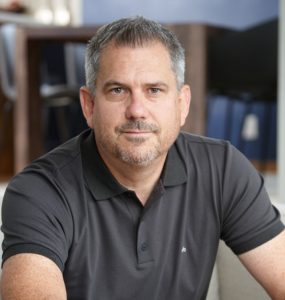The recent financial news would have you believe that the world financial markets are falling apart, and that the current bear market will probably be around for a while. In fact, the last two years have been a very dark time for U.S. large stocks. For example, the S&P 500 stock index—which is composed of U.S. large stocks—is down about 39% since August of 2000. Also, the Dow industrials are down about 23% during the same two-year period. Even though the stock indexes staged a powerful recovery after the terrorist attacks, the Dow industrials have fallen 18% from their high this year, and the broad S&P 500 stock index is down 21% this year.
The first thing to remember is that the S&P 500 stock index and the Dow Jones Industrial Average represent primarily U.S. large stocks. On July 12, 2002, the Wall Street Journal reported that the year-to-date and 12-month returns for other asset classes were as follows:
| Asset Class | Year-To-Date Return | 12-Month Return |
| Real Estate | 7.4% | 10.8% |
| Small-Cap Value | -2.9% | 1.6% |
| International | -4.0% | -9.6% |
As you can see, the real estate, small-cap value, and international asset classes have done far better during the last year than U.S. large stocks. So, the overall investment performance of globally diversified portfolios has been much better than the performance of the S&P 500 index or any other single index that you might read about in the news.
Another important asset class that has been vital to most diversified portfolios is fixed income (or bonds). Many of my clients who have been with me at least two months will readily see the stabilizing influence of owning bonds in their portfolios. Portfolios that do have at least some fixed income have been hit much harder during this bear market!
For my asset management clients, I would strongly encourage you to review your “Asset Class Performance Summary” report, which will show you the relative performance of each asset class that you own. This last year has provided tremendous evidence for the importance of owning a diversified portfolio of mutual funds that represent unique asset classes. I cannot even begin to describe the many horror stories that prospective clients have shared with me about the 30%-70% losses they have seen in their portfolios during the last 2 years. The terribly unfortunate part is that these losses occurred because these individuals owned concentrated portfolios, which consisted of mostly individual U.S. large stocks or technology stocks. Many financial advisors have also created enormous losses for their clients because of their foolish attempts at stock picking and market timing.
You should always remember that when any asset class performs poorly, it provides you with a “buying opportunity” that will lead to greater returns in the future. Without volatility in the stock markets, there would be NO opportunity to earn the returns that come from taking on risk. Most importantly, you only lose when you sell an asset class that has dropped in value. My investment philosophy requires that we only liquidate asset classes that have outperformed their long-term expected rate of return. The process of rebalancing your portfolio will reduce your overall risk and it will increase your long-term returns. I am confident that this investment philosophy will provide the highest risk-adjusted returns when compared with other investment approaches.
During this tumultuous time, I have been expecting phone calls from some of you (since most of my colleagues have received frantic calls from their clients). The fact that none of my clients have called with fearful concerns about their portfolios is a clear sign that you understand my investment philosophy and that you are confident it will provide you with solid returns over the long run. I am very pleased that you are NOT reacting to the fear and panic that we are seeing throughout the country. Discipline and patience are always rewarded in the long-term. Fear and greed will certainly lead to sorrow and financial loss. While NOBODY knows when the bear market will end, I expect it will happen when the soothsayers and the market gurus least expect it to (if history is any guide). That is why market timing is such a waste of time.
Please do not hesitate to call me if you are feeling worried or concerned about the markets. I will be more than happy to spend whatever time is necessary to ease whatever fears or concerns you may have.
Sincerely,
About Christopher Jones
Christopher Jones is the Founder and President of Sparrow Wealth Management, a fee-only financial planning and investment management firm. Before entering the investment field, Chris was a management consultant for Deloitte Monitor. He graduated summa cum laude from Brigham Young University with a B.S. in Economics and a minor in Business Management.



